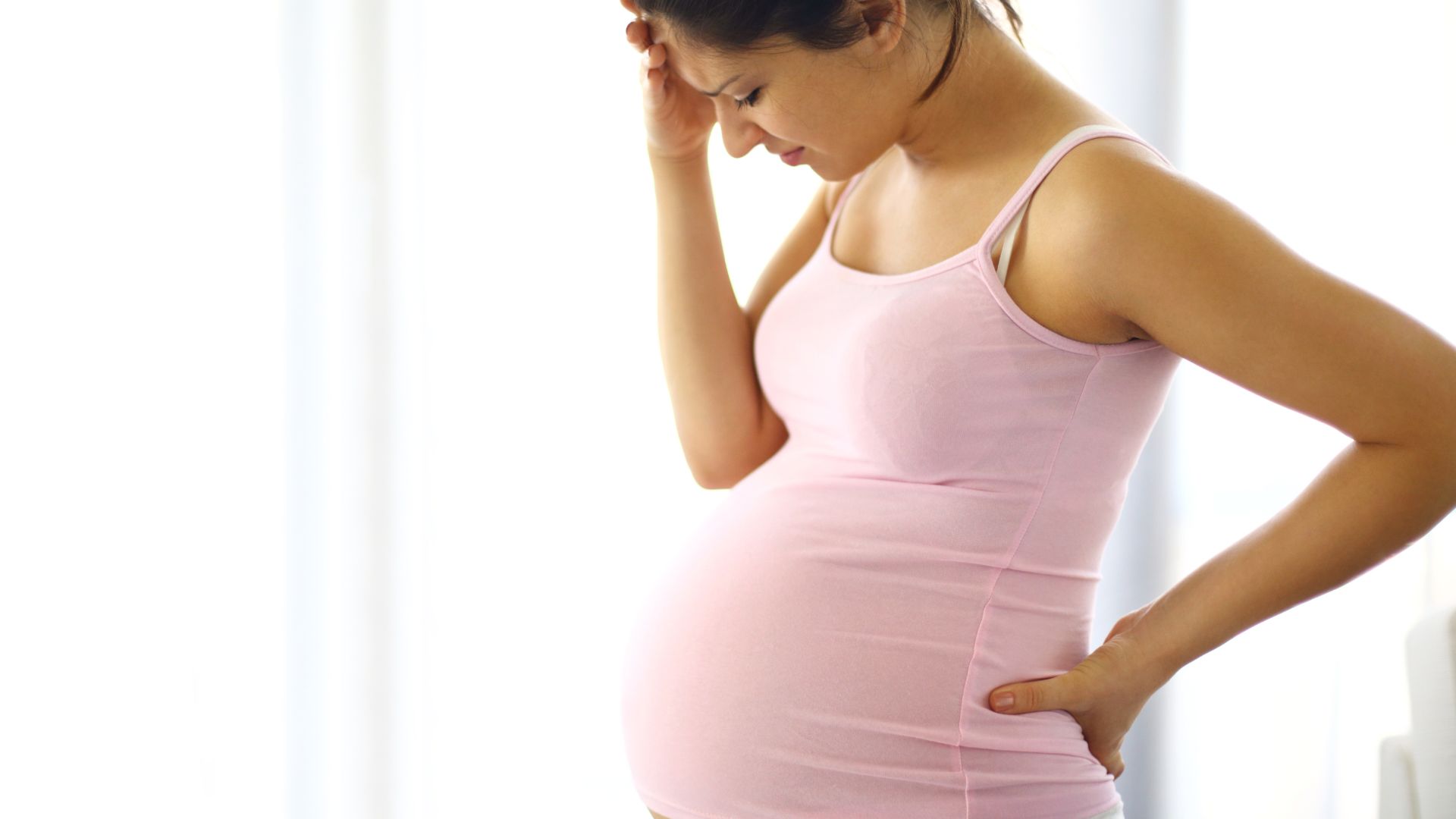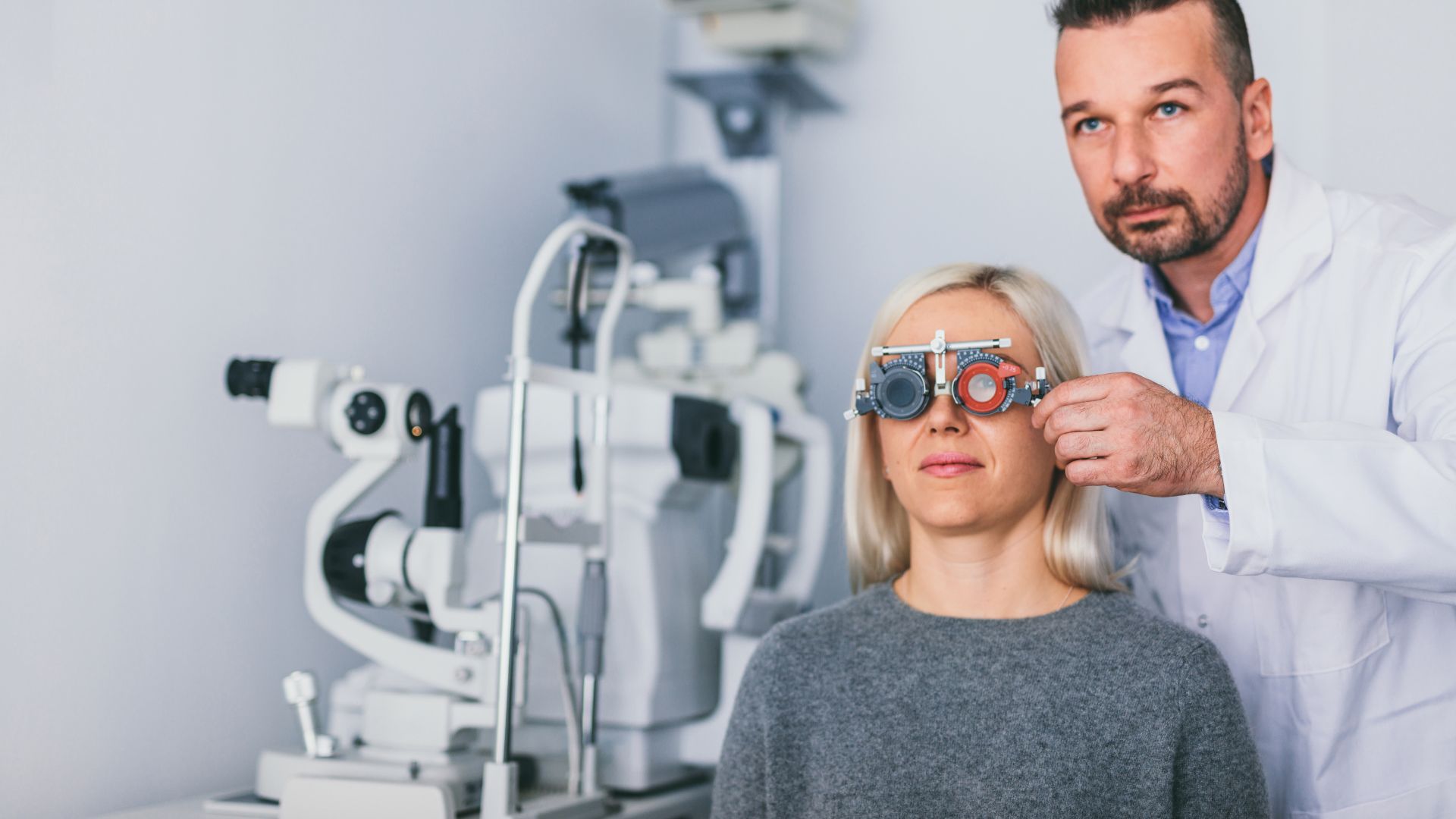Did you know 34% of expecting parents in Canada report noticeable shifts in their eyesight? Morning sickness and fatigue get a lot of talk, but eye changes often surprise families. At Ideal Eyecare, we help you understand these changes with expert care.
Hormonal changes and fluid buildup can cause blurry vision or dry eyes. These usually go away after having the baby. But, some symptoms need quick attention. The Canadian College of Optometrists suggests seeing an eye doctor at least once every three months.
Screen focus and light sensitivity might get worse. This is because of changes in hormone levels affecting the cornea. But, if you see sudden floaters, double vision, or partial blindness, it could be serious. These could be signs of preeclampsia or gestational diabetes, needing fast medical help.

Your body changes a lot during pregnancy, including your vision. Most of these changes go away after you have your baby. Knowing about these changes can help you feel more confident.
Fluid buildup doesn’t just happen in your ankles. It can also change how light hits your eyes, making things blurry. Optometrists in Mississauga say these changes often get worse in the third trimester.
More water in your body, thanks to hormones, can make your corneas swell. This swelling can change how well you see, sometimes making glasses less needed.
It’s best to wait until 6-8 weeks after giving birth to get new glasses. Mississauga optometrists use special technology to track these changes safely. If you notice:
Changes in humidity in Ontario can affect your eyes during pregnancy. Hormones can also make your tear production drop by 30% in some women.
During pregnancy, hormones that control tear glands are less active. This can make your eyes feel gritty, worse when you’re on screens or in air-conditioned spaces. Symptoms can get worse in Mississauga’s pollen-filled springs.
Use artificial tears without preservatives and with carboxymethylcellulose. Avoid drops that make your eyes red. For serious cases, talk to your optometrist about:
Changes in estrogen can make your eyes more sensitive to light. While most women get better by midday, if you’re really bothered, see an eye doctor.
High estrogen levels can make your corneal nerves more sensitive. Bright lights, like snow or glare, might bother you more. Wearing polarized sunglasses with UV400 protection can help.
Keep track of your light sensitivity with a notes app. Normal sensitivity:
But, if you see flashing lights, zigzag patterns, or tunnel vision, it could be a sign of preeclampsia. See a doctor right away.

Pregnancy changes your body in many ways, including your eyes. Hormone levels and blood volume increase, leading to vision changes. Most of these changes go away after giving birth. Knowing why they happen helps protect your eyes during this time.
Progesterone is a key hormone in pregnancy that affects many parts of the body, including the eyes. Its levels can rise up to 10 times during pregnancy, impacting eye structures.
Higher progesterone levels change how fluid moves in and out of the eyes. This can temporarily change eye pressure, but true glaucoma is rare in healthy pregnancies.
Hormonal changes make the cornea 5-8% more hydrated. This small change can affect how well contact lenses fit and prescription needs until hormone levels return to normal after birth.
Pregnancy increases blood flow by 50% by the third trimester. This affects delicate eye tissues.
More blood flow can strain the retina, which is a risk with pregnancy-induced hypertension. Regular eye exams can catch early signs of swelling or bleeding in the retina.
High or low blood pressure can cause vision problems. Sudden drops in blood pressure can make things blurry, while high blood pressure can be a sign of preeclampsia, a serious condition.
Carrying a baby requires a lot of nutrients. Your eyes need specific nutrients to stay healthy while supporting the baby’s growth.
Canada’s Food Guide is great for keeping your eyes healthy during pregnancy:
High blood sugar can damage tiny blood vessels in the eyes. All prenatal care in Canada includes diabetes screening between 24-28 weeks. At Ideal Eyecare, we work with your OB/GYN to catch early signs of diabetic retinopathy with special eye scans.

Some vision problems during pregnancy need quick medical help. Knowing the signs is key to keeping your eyes and health safe. Let’s look at the urgent signs that need care right away.
Preeclampsia is common in Canadian pregnancies, affecting 5-8%. Vision changes are a big warning sign. Quick action can stop serious problems.
Floaters are normal, but many at once is a warning. Look out for:
…These need blood pressure checks right away. Telehealth Ontario says call (905) 507-9752 if you see these with stomach pain.
Rainbow circles around lights are a warning if you also have:
This combo means high blood pressure. Ideal Eyecare offers quick retinal imaging for emergencies.
Hormones can weaken the retina. Watch for signs of damage:
Sparkles when moving your eyes might be okay. But danger signs include:
Dark areas moving into your side vision mean retinal detachment. People describe it as:
Any sudden sight loss is an emergency. Pregnancy can cause two main problems:
Pressure buildup around the brain shows as:
Fluid leaks under the retina cause specific symptoms:
If you have these vision problems, call Ideal Eyecare’s hotline or visit an Ontario urgent care center. Our clinics offer same-day tests to check your retina.

Keeping your eyes healthy during pregnancy means changing your daily habits. In Canada, dry air in winter and more screen time at work are big challenges. These tips mix advice from Health Canada with local solutions for comfort.
Hormonal changes can make your eyes dry. Here’s how to adjust:
Wear lenses for 6-8 hours a day in the third trimester when it’s driest
Use hydrogen peroxide solutions (Health Canada approved) for sensitive eyes
Ideal Eyecare suggests using humidifiers to fight dry air from heaters.
Your baby needs certain nutrients for their eyes. Focus on these Canadian foods:
BC salmon, Manitoba flaxseeds, and Ontario walnuts
Alberta beef with Saskatchewan carrots, spinach omelets with Quebec cheddar
Need to work on screens without eye strain? Try these tips:
Every 20 minutes, look at something 20 feet away for 20 seconds
Use amber-tinted filters at sunset to help your body make melatonin
Carry preservative-free artificial tears for long screen days, as Canadian Digital Health suggests.

Pregnancy means you need special eye care that fits your changing body. At Ideal Eyecare, we provide services just for expectant mothers in Peel Region and Greater Toronto Area West. Our clinic uses the latest technology and safe methods to protect you and your baby.
Our optometrists use safe, non-invasive methods for expecting mothers. We make sure you’re comfortable and safe during exams. This includes:
We work with Trillium Health Partners for extra care if needed. This partnership makes sure you get the best care for high-risk pregnancies.
Seasonal changes in Ontario can make dry eyes worse for pregnant women. Our treatments aim for safe, lasting relief:
We suggest Honeywell humidifiers for their steady moisture in Canadian winters. Our team helps set the right humidity levels for your eyes.
Vision changes don’t stop after giving birth. Our postpartum vision care program tracks:
We schedule follow-up Mississauga eye exams 6-8 weeks after giving birth. This timing helps us catch any ongoing vision problems early.
Most vision changes during pregnancy are temporary and go away after delivery, as Canadian Prenatal Health Guidelines say. Blurred vision or dry eyes often get better after having a baby. But, it’s important to keep an eye on them to catch any rare problems early.
Tracking symptoms like headaches or seeing things differently is key. It helps tell if it’s just hormones or if you need to worry about something serious like preeclampsia.
Getting help from experts who know about vision changes in pregnancy is smart. At Ideal Eyecare in Mississauga’s Square One area, they do special exams for expecting moms. They help with dry eyes and keep an eye on your vision after the baby is born.
For people in Peel Region, getting help is easy. Call Ideal Eyecare at (905) 507-9752 to book an eye exam that’s safe for pregnant women. They’re close to Square One Transit Terminal, making it easy to get there for check-ups. They even offer same-day appointments if you need to see an eye doctor right away.
Looking after your eyes is part of taking care of yourself during pregnancy. Simple things like updating your glasses, using artificial tears, or watching how much screen time you have can help. Stay informed, watch your symptoms, and use trusted eye care during pregnancy to feel confident and prepared.
BOOK YOUR COMPREHENSIVE EYE EXAM WITH DR. SHARON GARCHA
Got questions or need assistance? Contact us today, and we’ll help you find the perfect pair of eyewear tailored to your style and needs!
Ideal Optical / Ideal Eyecare has been Mississauga’s trusted source for personalized, expert eye care for over 30 years. Our team delivers tailored solutions to keep your vision healthy for life.
© 2025 Ideal Eyecare / Ideal Optical. All Rights Reserved.